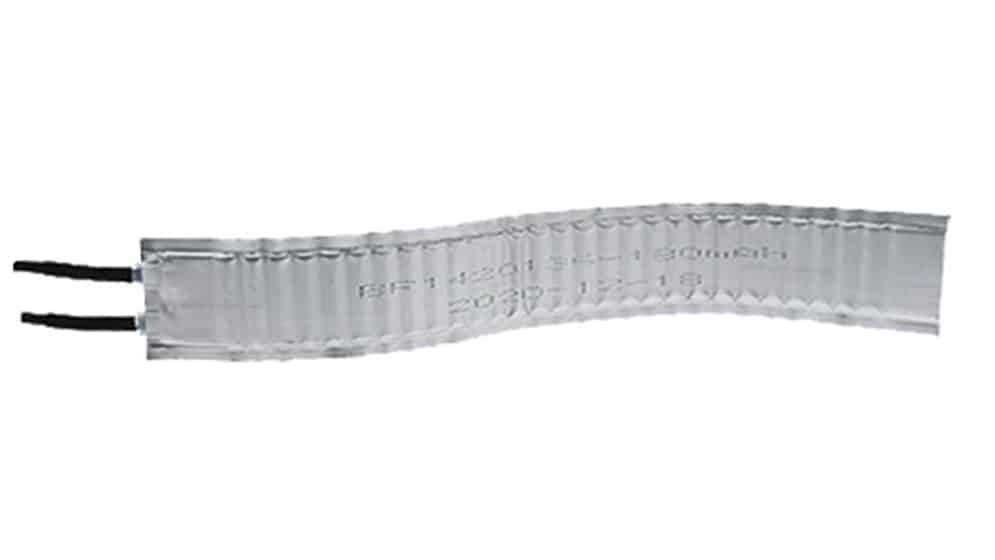- Curved Lithium Polymer battery
- Fast Charge Polymer Battery
- Flexible Polymer Lithium Battery
- Ultra-thin Polymer Battery
/ Blog / Battery Knowledge /
Flexible lithium-ion battery
21 Feb, 2022
By hoppt

A group of researchers at the University of California has created a breakthrough in battery technology -- one that will allow for large amounts of power to be stored in very flexible, thin batteries.
These batteries are expected to revolutionize not only consumer tech but also medical devices. They are made out of lithium-ion, which makes them similar to your smartphone battery. The new difference is that they can flex without breaking. That will make it possible to use on future foldable electronics, like some upcoming Samsung phones .
These new batteries are also less likely to form dendrites , which means safety issues may eventually become a thing of the past. Dendrites are what cause battery fires and explosions -- something all tech companies aim to prevent as much as possible. The dendrites form as batteries charge and discharge. If they grow to touch the battery's other metal parts, then a short circuit can happen which might cause an explosion or fire.
Scientists aren't sure just how long it will take to go from prototype to commercial product, but we do know that these new lithium-ion batteries will be safer than those we have now -- and longer lasting . The discovery was published in the journal ACS Nano.
It should be noted that scientists at Stanford University and MIT discovered this same issue several years ago , showing that even stiff objects could flex inside of a battery during repeated cycling (charging/discharging). While positive for consumer tech, this is somewhat unfortunate for medical devices since most are made out of silicone (which is the most flexible material). Flexible medical devices will likely require more testing to ensure safety.
The new batteries are also expected to be more powerful than existing lithium-ion batteries, though it remains unclear if this is true for all applications. It is known that the batteries will be extremely flexible and capable of bending into multiple forms without breaking. The research team claims that one gram of their new material can store as much energy as an AA battery, but we'll have to wait and see what companies do with this technology before we know for sure .
Conclusion
Researchers have created lithium-ion batteries that are tough, flexible and less likely to form dendrites. They expect these batteries to be used in foldable phones, medical devices and other tech. It is unknown how long it will take for these batteries to go from prototype to product on the market.
The new technology was created at UC Berkeley and published in ACS Nano journal . It was also discovered by scientists at Stanford University and MIT several years ago. That research showed that even stiff objects could flex inside of a battery during repeated cycling (charging/discharging). These findings are somewhat unfortunate for medical devices, which are made mostly out of silicone. Flexible medical devices will need more testing before being approved or marketed widely .
These new batteries are also expected to be more powerful than existing lithium-ion batteries. It remains unclear if this is true for all applications. The research team claims that one gram of their new material can store as much as an AA battery, but we'll have to wait and see what companies do with this technology before we know for sure .



